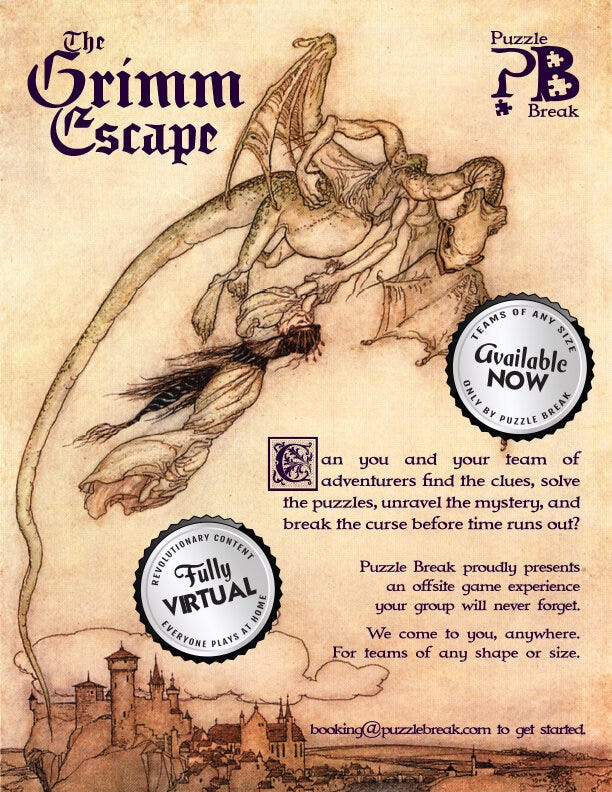The Weirdest Shit to Come Out of Silicon Valley

In May, the world soldiered on in its fight against the coronavirus. While some continued to practice social distancing and hunker down — others, not so much.
Aside from Memorial Day pool parties, we also made social distancing consultants and mannequin diners things this month.
Place are starting to open up, and as we sloooooowly return to the familiar, I’m bringing back this column’s traditional game: Two Truths and a Lie, the Silicon Valley Startup Edition.
Sign up for The Bold Italic newsletter to get the best of the Bay Area in your inbox every week.
You know the drill by now: Out of the following three names of startups (focused on plant-based), which one is the fake one? Scroll to the bottom for the answer.
- Unicorn Meat, which makes plant-based patties through a fermenting and probiotic process.
- Incogmeato, which makes plant-based burgers and chicken tenders.
- Where’s the Beef, which develops mycoprotein to make plant-based steak.
Know of some ridic stuff happening in tech? Email, DM, or tweet me to include it in next month’s edition.
Introducing the Zoom escape room

With so many people working remotely, company culture teams have been trying to figure out how they can make their employees feel connected. They’ve tried virtual happy hours and quizzes, but Nate Martin, founder of Puzzle Break, has come up with a more unique way for the teams to connect. Enter the Zoom escape room, a twist on the traditional escape room. Martin, a long-term escape room entrepreneur, developed the concept when the pandemic crashed his IRL escape room business.
How it works: Players enter the provided Zoom link, and a Puzzle Break moderator explains the rules and then curates the group’s challenge. They’ve been transported to a strange land by an evil curse and must work together to break it, cracking the different mysteries before the time runs out. Martin launched the game in May and had 15 bookings his first week; now, he’s had over 100.
There are other virtual escape rooms; Escape SF released two shelter-in-place escape games for Bay Area residents. They’ve combined virtual and physical, delivering a briefcase to your residence and then hosting a Zoom feed with a helpful secret agent — together, you can crack the case.
A remote-controlled mask you can eat in
We all want to restart our lives, but personally, it seems a little scary to go from zero to venturing inside a restaurant, sans mask, and sitting down to chow in a room full of other people.
But restaurants are some of the hardest hit and desperately want people to return in order to stay afloat. One surprising potential solution: a mask that you can eat in. Entrepreneurs in Israel have developed just this sort of mask, which includes a retractable slot over the mouth area, reports Eli Berlzon in Reuters. The mouth opens and closes via a lever, letting the diner slip something inside and then close it again.
“The mask will be opened mechanically by hand remote or automatically when the fork is coming to the mask,” Asaf Gitelis, from Avtipus Patents and Inventions, told Reuters.
Sure, it’s best for solid food (ice cream or soup could get messy) but it’s an innovative suggestion — and if we’re going to move forward, we need more freethinkers. Though it doesn’t sound too relaxing. Price is expected to be between $1 and $3, and they hope to release in fall or winter 2020.
Kid turns down $8 million for his coronavirus tracker

We live in a world that revolves around money — something that’s especially obvious in Silicon Valley, where investors drop staggering sums of cash into long shots like Juicero and canned water. That’s why 17-year-old Avi Schiffmann’s good deed is so impressive. Business Insider reporter Mary Meisenzahl reported in-depth on Schiffman’s coronavirus tracker, ncov2019, which the high schooler built in March. It’s now considered one of the “most visited trackers” in the world, with 30 million visitors a day. This tracker shares statistics and data for all countries, including recovery rates, vaccination progress, and a survival rate calculator.
Marketers have taken notes and reached out to him for ad space. One offered $8 million to buy it. He turned every offer down. “I don’t want to be a profiteer,” he said. His fear: Pop-ups could ruin the UI, and he doesn't want to be forced to make changes he doesn't agree with. They’d also slow the site, making it harder for people with poor connections to access it. Someone give that kid an award — oh wait, they already did: In May, he won a Webby award as person of the year.
Glasses that can change your mood
We’d all like to feel a little sunnier about life right now, and if the team behind San Francisco-based startup Futuremood has their way, that could be as simple as donning a pair of sunnies. Their first product, the $175 Auras, are, they say, “scientifically tested” to alter your mood. “They’re not as subtle as CBD, but not as strong as a shot of tequila or glass of Rosé,” co-founder Michael Schaecher told TechCrunch.
The mood altering effect allegedly comes from world-renowned glass and lens maker Zeiss, by way of their new lens technology, which is based off Zeiss-funded preliminary research that filtered light can change how people feel. Available in four shades, each markets having a different mood altering effect: blue recharges, green calms and relaxes, red energizes and arouses, and yellow helps with focus and clarity. Their press images present a utopian sci-fi future, with models resting on clouds, sparkling in glitter vortexes, and pouting in acid green forests. I suspect this is mostly bollocks — the science just isn’t there yet — but isn't it refreshing for people to be funding this kind of shit again? I feel better already.
Get a room by the hour

No, not those kinds of rooms. We’re talking about rooms you can rent by the hour from Globe, a Bay Area startup, that launched in June 2019, to use for work or relaxation. The company reports seeing a surprise surge in business during the shelter in place. “At a time when people are hanging on to the fringe of their sanity because we are not meant to be cooped up like this, we give people a reprieve,” founder Emmanuel Bamfo told the New York Times. Prior to the pandemic, the company was growing slowly, but since the lockdown, the surge has been overwhelming, he said.
To respond, all Globe hosts received a cleaning supply kit, including masks, gloves, and a thermometer, and they instituted new rules. Users must take their temperature and send a photo of the thermometer to access check-in. Some hosts, especially those hit by Airbnb losses, say they’re more comfortable with hourly rental to locals, than renting apartments to tourists, who might be contagious. And users, desperate for a reprieve from their crying baby/boyfriend/boss, find the peace and quiet just what the doctor ordered. If they can find a room, that is. There are 5,500 listed for the 10,000 signed up users. 100,000 people are on Globe’s waiting list, 20,000 who joined over the last nine weeks; they’ll get access once Bamfo adds more properties.
Wired relationship counseling

At Seattle’s Gottman Institute, relationship therapists attach wires to couples to assess their interactions. Now, the institute’s co-founders, Julie Gottman, PhD, and John Gottman, PhD, are spinning off this tech set-up into a startup, Affective Software, Inc.
The new company offers an app-based, DIY solution, reports GeekWire. Couples upload videos of themselves (or their therapist does, with permission) to the app, which uses machine learning to assess the couple’s verbal and nonverbal behavior. Couples can also choose to use fingertip sensors in conjunction with the app, to add additional data. The app’s set to be released in August, on a subscription model.
“It’s not the same as a beating heart sitting in a chair across from you, but it’s powerful,” Gottman said. The bigger picture: Makescience-based relationship guidancemore widely available, and at a lower price point.
Answers to “Two Truths and a Lie: Where’s the Beef startup is the fake one. Unicorn Meat is a San Francisco-based plant-based meat startup and Incogmeato is from Morningstar Farms.







